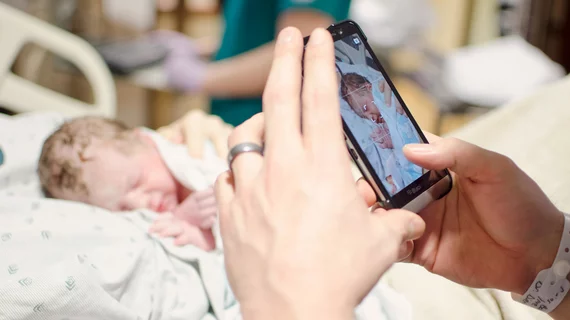Welcome to your teched-out world, baby
A baby was born today. Smart machines have watched over the little bundle of joy practically since conception—and will be an omnipresent part of his or her life for decades to come. What can we tell this individual their life will be like?
Science writer Kara Platoni asked the question on behalf of MIT Technology Review. She got more than a dozen tech experts to guide our hypothetical 1-day-old through the next 125 years of technological evolution. Why 125? Because hopes are high for extended life expectancies. And because 2024 is the 125th anniversary of the periodical’s launch.
“[T]he biggest change in your lifetime will be the rise of intelligent agents,” Platoni and experts offer on Day 1. “Computing will be less like a tool and more like a companion. It will learn from you and also be your guide.”
Here are excerpts from the panel’s advisements and projections over the course of the newborn’s life.
2024 to 2034 (Age 0 to 10)
Baby, your primary school will certainly have computers, though we’re not sure how educators will balance real-world and onscreen instruction. But school is where you will probably meet your first intelligent agent, in the form of a tutor or coach.
‘Your AI tutor might guide you through activities that combine physical tasks with augmented-reality instruction—a sort of middle ground.’
2040 (Age 16)
You’ll likely still live in a world shaped by cars: highways, suburbs, climate change. But some parts of car culture may be changing. Electric chargers might be supplanting gas stations.
‘And just as an intelligent agent assisted in your schooling, now one will drive with you—and probably for you.’
2049 (Age 25)
By your mid-20s, the agents in your life know an awful lot about you. Maybe they are, indeed, a single entity that follows you across devices and offers help where you need it. At this point, the place where you need the most help is your social life.
‘[M]aybe you will date an entirely virtual being. Or you’ll go to a virtual party, have an amazing time—and then later realize that you were the only real human in that entire room. Everybody else was AI.’
2059 (Age 35)
Baby, perhaps now you have your own baby. The technologies of reproduction have changed since you were born. For one thing, fertility tracking will be way more accurate—like weather forecasts.
‘For another, you may have a baby-handler device—a late-night soothing machine that rocks, supplies pre-pumped breast milk, and maybe offers a bidet-like cleaning and drying situation. This may be your own baby’s first experience of being close to a machine.’
2074 (Age 50)
Now you are at the peak of your career, Baby. You might start the workday by lying in bed and checking your messages—on an implanted contact lens.
‘Virtual agents can mimic your voice and mannerisms. Why not make one go to meetings for you?’
2099 (Age 75)
If getting from point A to point B is becoming difficult, maybe you can travel without going anywhere.
‘You may have a brain-machine interface that lets you change your surroundings at will. You think about, say, a jungle, and the wallpaper display morphs. The robotic furniture adjusts its topography so you can sit on a boulder or lie down on a hammock.’
2149 (Age 125)
There is perhaps one last thing to try—another AI. You curate this one yourself, using a lifetime of digital ephemera: your videos, texts, social media posts. It’s a hologram, and it hangs out with your loved ones to comfort them when you’re gone.
‘It won’t exist forever. Nothing does. But by now, maybe the agent is no longer your friend. Maybe, at last, it is you.’
There’s more. Read the rest.

